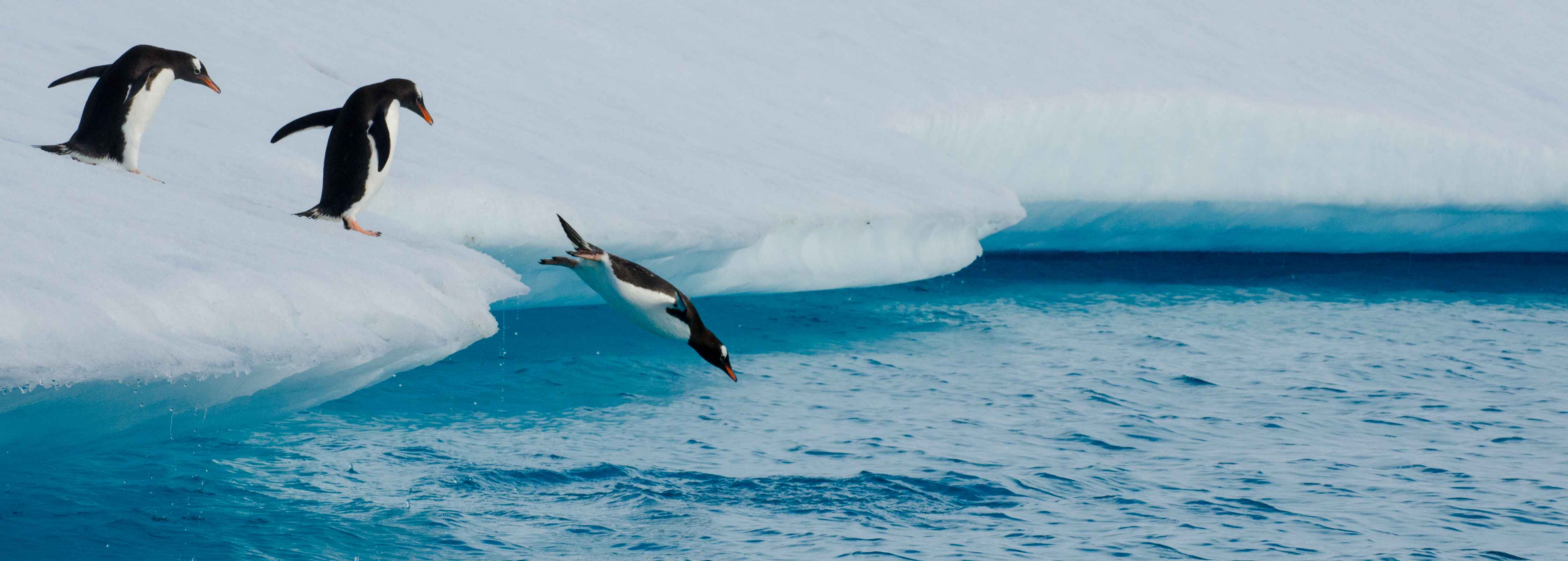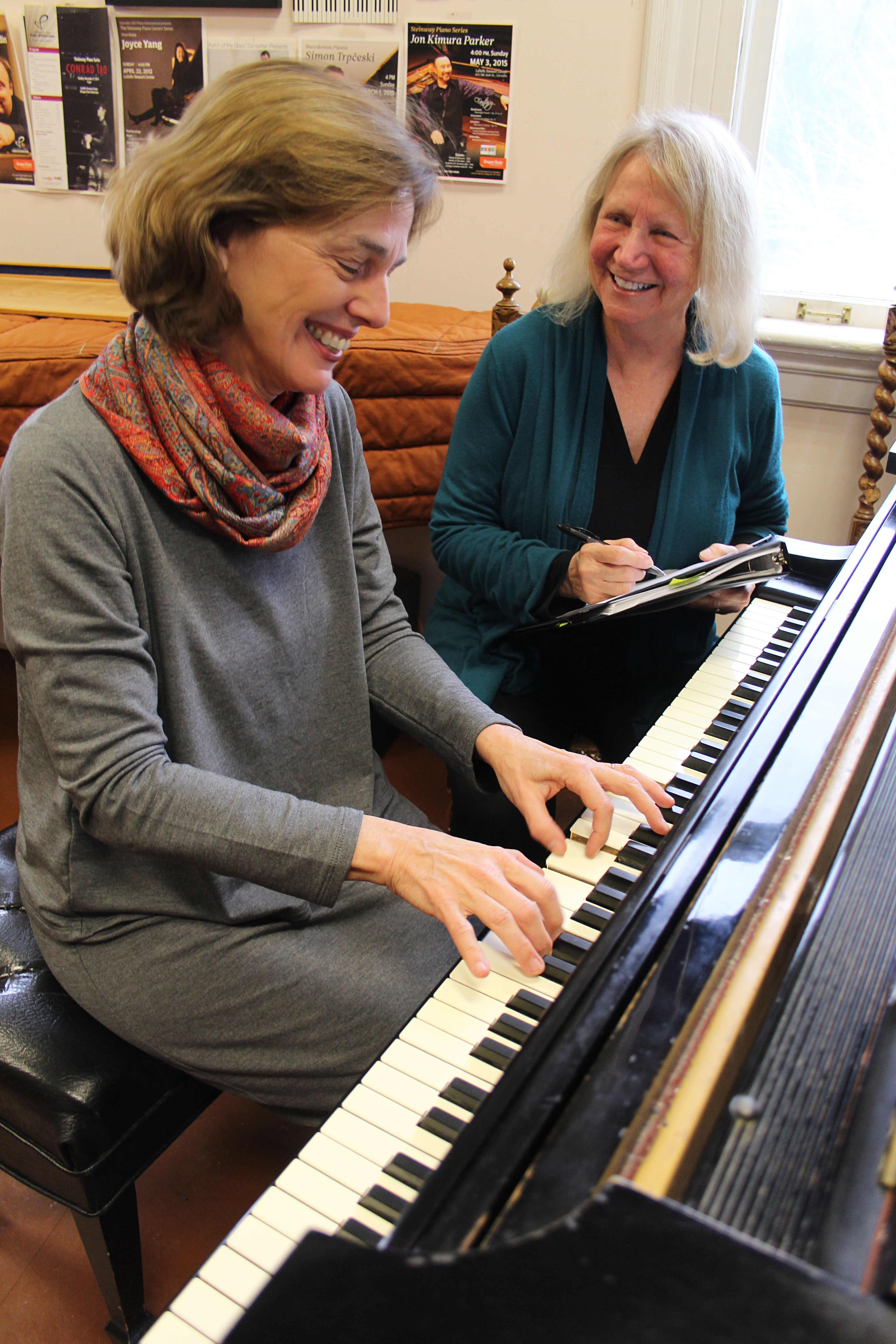It is impossible to hear the silence of vanished birdsong. We can’t see the absence of rainbow fish in bleached coral reefs. The bodies of extinct frogs don’t pile up around our knees. So we have to engage our imaginations every way we can, to understand that human activities are driving the Earth into a Sixth Mass Extinction, bringing the Cenozoic Era to a close. Sixty-five million years ago, the violent impact of an asteroid killed perhaps eighty percent of the species then alive, including most dinosaurs and many creatures of the seas. And now, the planet reels from human violence: since 1970, 39 percent of terrestrial wildlife –gone, 39 percent of marine wildlife –gone, 76 percent of freshwater wildlife –gone.
“Words alone cannot express the enormity of the losses and the moral urgency of action,” says Kathleen Dean Moore, “and so we turned to music.”

In a unique creative collaboration, classical pianist Rachelle McCabe and Moore, a philosopher and writer, have created a performance piece, A Call to Life: Variations on a Theme of Extinction. In the program, McCabe plays a breathtaking interpretation of Sergei Rachmaninoff’s Variations on a Theme of Corelli. Moore weaves words between the variations, creating a call to action to save the planet’s lives. “We are using a formidable piece of music to address a formidable global crisis,” McCabe says.
The synergy of words and music creates what an audience member called “as powerful a message as one could imagine.”
“It is at once devastating and inspiring, despairing and hopeful,” wrote ocean conservationist Mark Hixon, who heard the performance in Hawaii.

McCabe and Moore have performed for audiences all over the west, from Alaska to California, Hawaii to Wisconsin, with more performances scheduled for Flagstaff and Juneau. Recently, Moore and McCabe produced a studio version of the performance, directed and edited by Eric Gleske at Oregon State University. That video is now available free at www.riverwalking.com.
It is accompanied by a guide for discussion of what individuals and groups can do to slow the rates of extinction. By making the performance widely available, McCabe and Moore hope that organizations –churches, universities, conservation groups, local governments, environmental justice organizations, peace groups, activists, and schools– will use the materials to create a powerful public discourse that moves from scientific understanding of the problem of extinction, to emotional involvement, and to courageous, effective action.
This Call to Life collaboration began when Moore spoke in despair from the podium at Oregon State University several years ago. “If these rates of extinction continue,” she said, “I will die in a world that is half as abundantly beautiful as the one I was born into. My children will tear out half the pages in their field guides and throw them away. They won’t need them ever again.”

Listening from the audience, McCabe thought immediately of Rachmaninoff’s furious, yearning music. Music has the power to open peoples’ hearts without breaking them, she knew. And words and music together? As Moore left the stage, McCabe stopped her in the aisle and suggested a collaboration. That was the beginning of A Call to Life.
Unity College president emeritus Mitch Thomashow, who caught the performance in Seattle, called it “… truly exceptional. The power, eloquence, wisdom, urgency, and insight of the presentation, the synergy of the music and the reading was brilliant… an emotional connection to the planetary emergency.”
Moore and McCabe have collaborated before, team-teaching Oregon State University courses that brought philosophy and music together to explore concepts such as love, nature, evil, and music itself. But the Call to Life collaboration involved an intensity of feeling and effort neither had experienced before. Over a period of several months, Moore listened closely as McCabe played the Rachmaninoff and spoke of its meaning for her. Then Moore began to write words to weave over and between the variations. “It was the most intense writing I’ve ever done,” Moore said. “Often, as we worked, we were both in tears.”
The fury of Moore’s words echo the pounding fury of McCabe’s deeply expressive interpretation of Rachmaninoff’s variations.
It’s madness, the trades we make.
We trade deep mossy forests for uselessly large homes.
We trade a singing marsh for another Costco parking lot.
It’s madness, this consumption, this eating up.
For corn to burn in our cars, we are happy to give up monarch butterflies.
For one more fitness center, we blithely give up the spring chorus of frogs.
For petrochemical profits, we give away the god damned future.
It’s a feverish, mad auction of what is of eternal value for what is cheap and desperately sad.
And when the music aches with all the grief and hope in the human heart, so do Moore’s words.
The cosmic challenge of our time is to re-create our humanity through its great crisis
—And this means not just saving our species,
But realizing our full humanity as kin to all the world’s blooming, bellowing lives
—So that we can learn what it means to live in concert with the Earth.
And so that, at the end of the day,
The children may sing themselves to sleep in a safe and sustaining night.
The recorded studio version of A Call to Life is available through www.riverwalking.com.
Rachelle McCabe, concert pianist and Professor of Music at Oregon State University, enjoys an international career as an artist-teacher and as a solo recitalist and highly respected chamber musician. She has performed extensively in the United States, Canada, Southeast Asia and England, and has been heard on NPR’s Performance Today, the CBC, and PBS television.
Kathleen Dean Moore is a career philosopher, nature writer, and veteran climate advocate best known for her ability to weave science, ideas, and emotions in her spoken-word performances and books. She is the author or co-editor of a dozen books, including Riverwalking, Great Tide Rising, and the newest, a novel, Piano Tide.
McCabe and Moore will be performing A Call to Life: Variations on a Theme of Extinction at Northern Arizona University on Monday, April 24th in a celebration of Earth Day. More information can be found through NAU’s website.
This post is part of the MAHB’s Arts Community space –an open space for MAHB members to share, discuss, and connect with artwork processes and products pushing for change. Please visit the MAHB Arts Community to share and reflect on how art can promote critical changes in behavior and systems and contact Erika with any questions or suggestions you have regarding the space.
MAHB Blog: https://mahb.stanford.edu/creative-expressions/listening-extinction/
The views and opinions expressed through the MAHB Website are those of the contributing authors and do not necessarily reflect an official position of the MAHB. The MAHB aims to share a range of perspectives and welcomes the discussions that they prompt.
